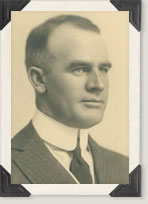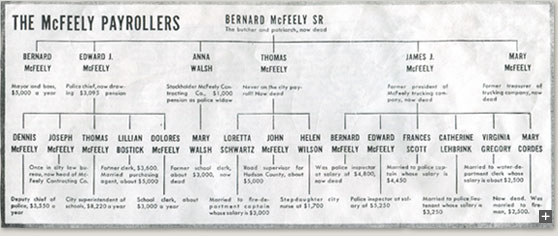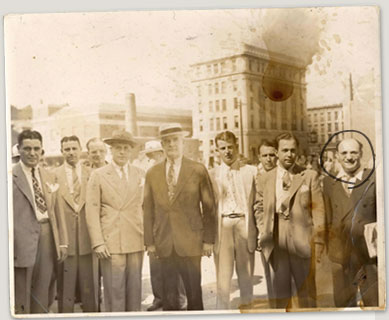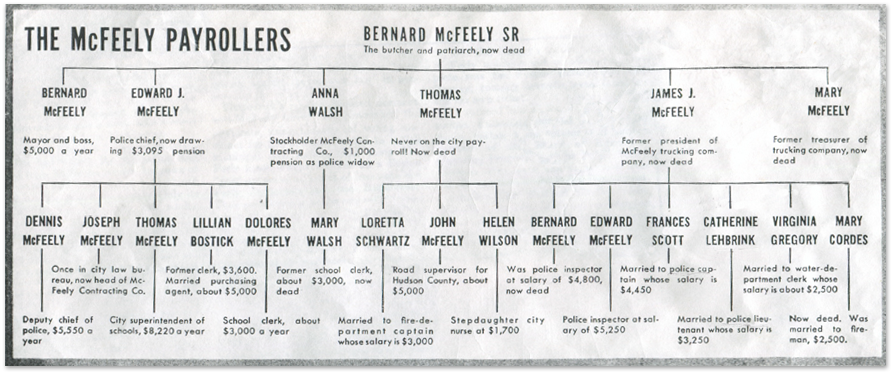 Bernard McFeely
Bernard McFeelyHoboken Mayor
When the economic crisis struck, Boss McFeely and his clan continued to feed off the public trough, even as the poormaster claimed taxpayer funds were inadequate to meet the needs of the city’s jobless and hungry. Unrestricted by civil service, the mayor installed over six-dozen relatives in municipal posts, including his brother as Chief of Police. By 1937, the city budget allowed just $16,000 for aid to the poor, while $39,000 was allotted to the salaries of just fifteen of the Mayor’s kin.
The killing of the Hoboken poormaster brought this corrupt regime under intense scrutiny. How could the mayor afford a $750 rug for his office when his neighbors were begging the poormaster for a nickel’s worth of coal? In building a case for the accused, defense attorney Samuel Leibowitz vowed to expose McFeely’s corruption and the siphoning of public funds that could have sustained the city’s poor.
 “The McFeely Plum Tree,” just 15 of at least 72 McFeelys or McFeely kin on the city
“The McFeely Plum Tree,” just 15 of at least 72 McFeelys or McFeely kin on the citypayroll. The average annual income in New Jersey was then less than $500.
 Judge Charles DeFazio was a McFeely supporter during the 1930s and worked in the city’s law department. He later aligned himself with a team that overthrew McFeely in the 1947 election, signaling the transfer of city power from the Irish to Italians. Listen to DeFazio’s recollections of the McFeely regime.
Judge Charles DeFazio was a McFeely supporter during the 1930s and worked in the city’s law department. He later aligned himself with a team that overthrew McFeely in the 1947 election, signaling the transfer of city power from the Irish to Italians. Listen to DeFazio’s recollections of the McFeely regime.LISTEN
Mayor Bernard McFeely, center, in boater hat. Far right: Charles DeFazio.

